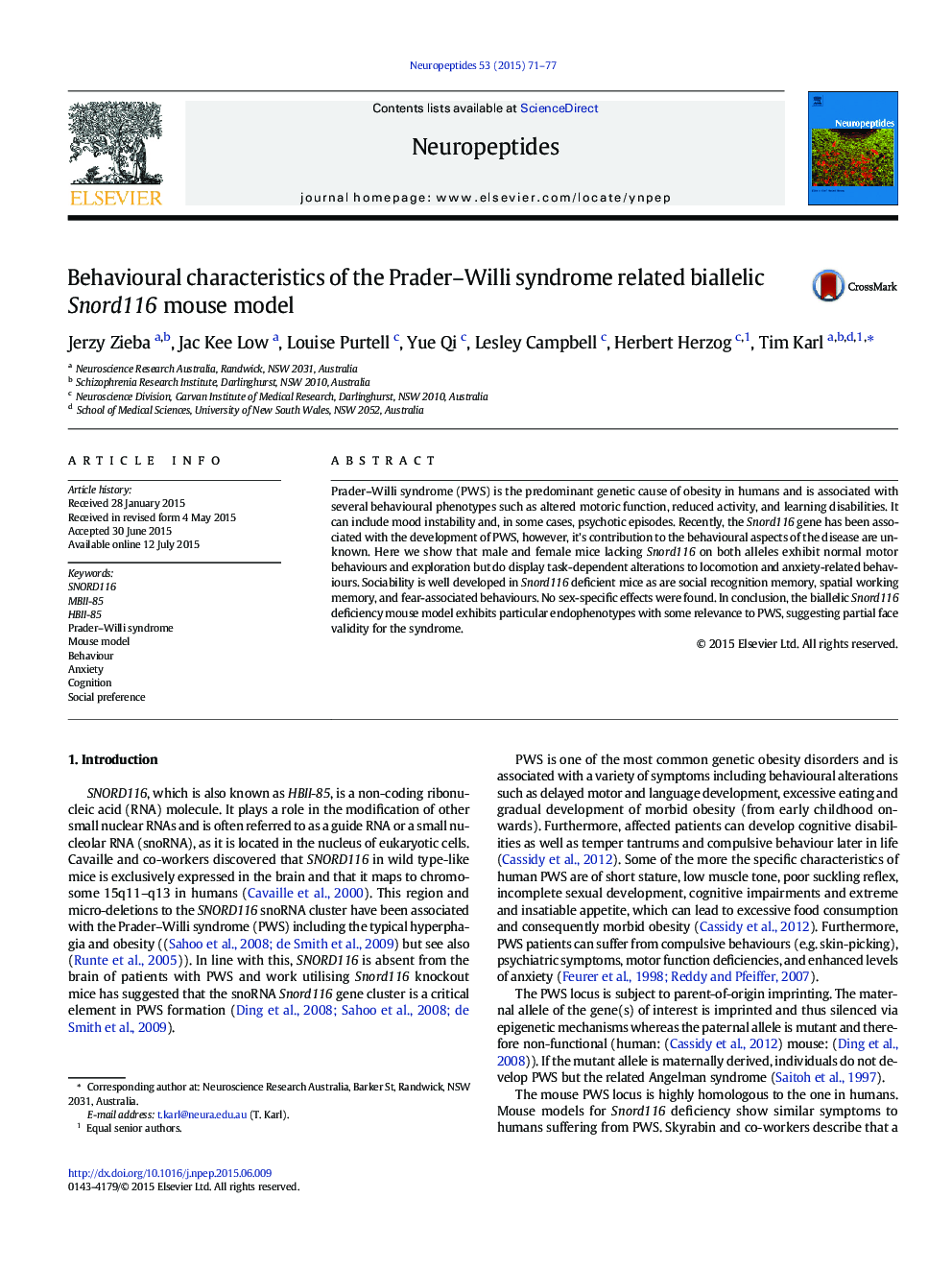| Article ID | Journal | Published Year | Pages | File Type |
|---|---|---|---|---|
| 2808016 | Neuropeptides | 2015 | 7 Pages |
•Snord116 deficiency leads to task-dependent changes in locomotion and anxiety.•Cognitive domains are intact in biallelic Snord116 deficient mice.•Social behaviours are well developed in Snord116 deficient mice.
Prader–Willi syndrome (PWS) is the predominant genetic cause of obesity in humans and is associated with several behavioural phenotypes such as altered motoric function, reduced activity, and learning disabilities. It can include mood instability and, in some cases, psychotic episodes. Recently, the Snord116 gene has been associated with the development of PWS, however, it's contribution to the behavioural aspects of the disease are unknown. Here we show that male and female mice lacking Snord116 on both alleles exhibit normal motor behaviours and exploration but do display task-dependent alterations to locomotion and anxiety-related behaviours. Sociability is well developed in Snord116 deficient mice as are social recognition memory, spatial working memory, and fear-associated behaviours. No sex-specific effects were found. In conclusion, the biallelic Snord116 deficiency mouse model exhibits particular endophenotypes with some relevance to PWS, suggesting partial face validity for the syndrome.
